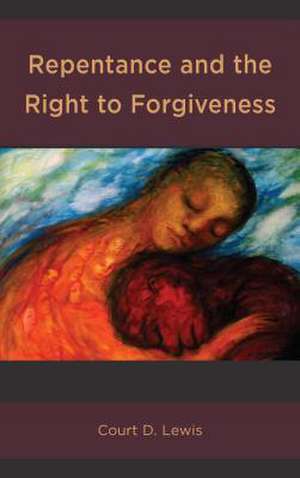Repentance and the Right to Forgiveness
Autor Court D. Lewisen Limba Engleză Hardback – 14 sep 2018
Preț: 657.55 lei
Preț vechi: 853.97 lei
-23% Nou
Puncte Express: 986
Preț estimativ în valută:
125.84€ • 131.21$ • 104.58£
125.84€ • 131.21$ • 104.58£
Carte tipărită la comandă
Livrare economică 21 martie-04 aprilie
Preluare comenzi: 021 569.72.76
Specificații
ISBN-13: 9781498558600
ISBN-10: 1498558607
Pagini: 186
Dimensiuni: 152 x 229 x 20 mm
Greutate: 0.7 kg
Editura: Rowman & Littlefield
ISBN-10: 1498558607
Pagini: 186
Dimensiuni: 152 x 229 x 20 mm
Greutate: 0.7 kg
Editura: Rowman & Littlefield
Notă biografică
Court D. Lewis is Associate Professor of Philosophy at Pellissippi State Community College, in Knoxville, TN. Specializing in Ethics, Forgiveness, and Justice, Court is the author of 'Repentance and the Right to Forgiveness', Series Editor of Vernon Press's series 'The Philosophy of Forgiveness', and co-editor (with Gregory L. Bock) of 'The Ethics of Anger' and 'Righteous Indignation: Christianity and Anger'. Court is a member of the Concerned Philosophers for Peace, proud father and husband, volunteer, and musician.
Descriere
This book develops a rights-based theory of justice that maintains that genuine repentance creates a right to be forgiven. Examining the nature of rights and theological conceptions of forgiveness, the author shows why such a right is nonrepugnant and produces the most just state of affairs for victims and wrongdoers.
